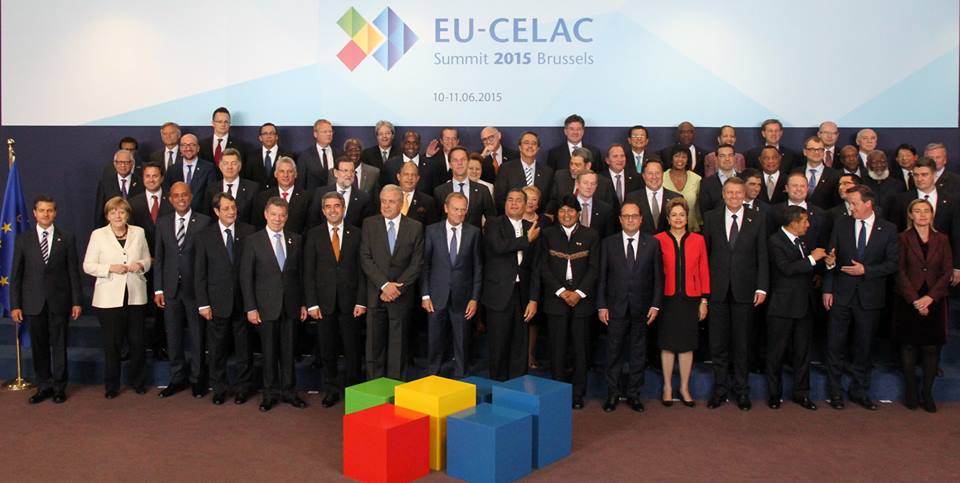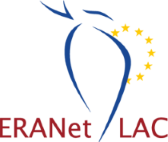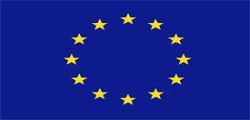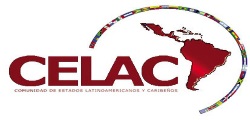EU-CELAC 2015 Summit Group Photo
Trinidad and Tobago taps into research collaboration between the European Union and Community of Latin American Caribbean States
The Government of Trinidad and Tobago recently agreed to tap into the benefits of research collaboration with the European Union (EU) and the Community of Latin American Caribbean States (CELAC) through this country’s participation in the EU-CELAC Joint Initiative for Research and Innovation (JIRI) and the ERANet-LAC Project.
Launched in 2010, CELAC is a regional mechanism for political dialogue and cooperation encompassing for the first time all 33 LAC countries. CELAC is now the EU's counterpart for the bi-regional partnership process and includes a biennial Summit of Heads of Governments and regular Senior Officials’ Meetings. The EU and CELAC are pursuing a number of specific thematic dialogues and collaborative initiatives with the Joint Initiative on Research and Innovation (JIRI), being the foremost. JIRI aims to foster sustainability and social inclusion through a targeted focus on science, research, technology and innovation.
ERANet-LAC is a Network of the (EU and CELAC on Joint Innovation and Research Activities. It aims to strengthen the bi-regional partnership in Science, Technology and Innovation by planning and implementing concrete joint activities and by creating a sustainable framework for future bi-regional joint activities. It also provides an opportunity to address global challenges for the cooperation on science, technology and innovation, with focus on sustainable development and social inclusion.
The main activities of ERANet-LAC are:
- Promotion of mutual opening and coordination of existing programmes, infrastructures and cooperation.
- Implementation of 2 Joint Calls: The first one was launched in 2014 and the second one to be launched at the end of 2015.
- Coordination of a consultation process to inform funding agencies and research institutions from both regions about the joint actions.
- Building a platform for EU and CELAC funding agencies.
- Trinidad and Tobago’s participation is led by the Ministry of Science and Technology in conjunction with NIHERST. Participation will support the implementation of the new mechanism, the "EU-CELAC Joint Initiative for Research and Innovation", and establish new or strengthen existing thematic networks and partnerships on agreed issues of mutual interest. This initiative will facilitate exchanges between higher education and research institutions in the European Union and in CELAC countries, research centres and networks, and private and public sector institutions. It will also open up opportunities to explore the possibility of working jointly with other institutions and with the business community in matters related to innovation and knowledge, applied research and technological innovation.
The Joint Initiative for Research and Innovation (JIRI) is implemented under five thematic areas:
- Bio-economy
- Biodiversity and Climate Change
- Renewable Energy
- Information and Communication Technology (ICT)
- Health
Under these five thematic areas, working groups co-led by one country from the EU and one country from CELAC have been established to define common objectives, activities to combine national, regional and bi-regional instruments and identify relevant indicators to help monitor implementation.
It is expected that participation in JIRI and the ERANet-LAC Project will result in improved quality and effectiveness of Trinidad and Tobago’s scientific and technological efforts through:
i) increased knowledge of the EU-LAC scientific and technological communities;
ii) joint research on topics of mutual interest and access to larger and more advanced scientific and technological capacities; and
iii) increased information exchange on issues of mutual interest.



 The European Union (EU)
The European Union (EU) The Community of Latin American and Caribbean States (CELAC)
The Community of Latin American and Caribbean States (CELAC)